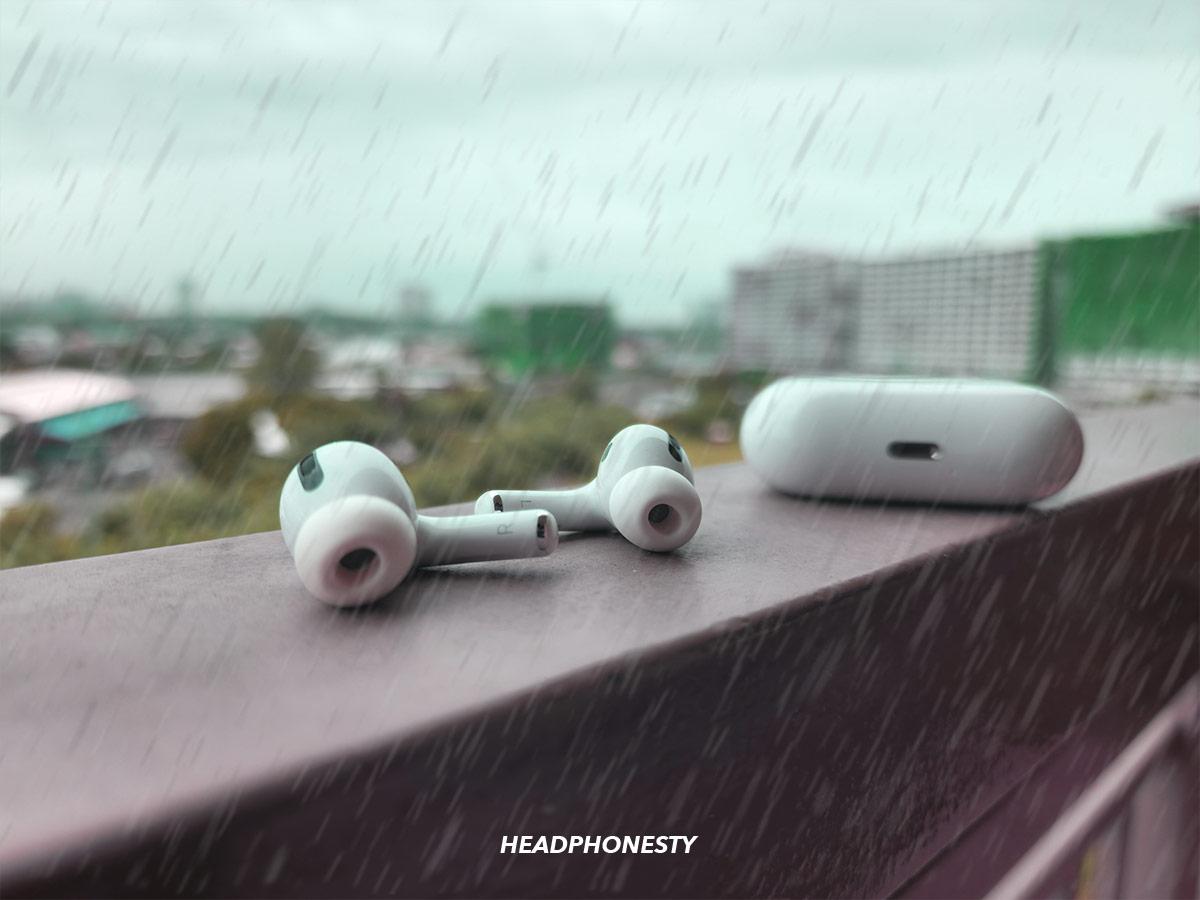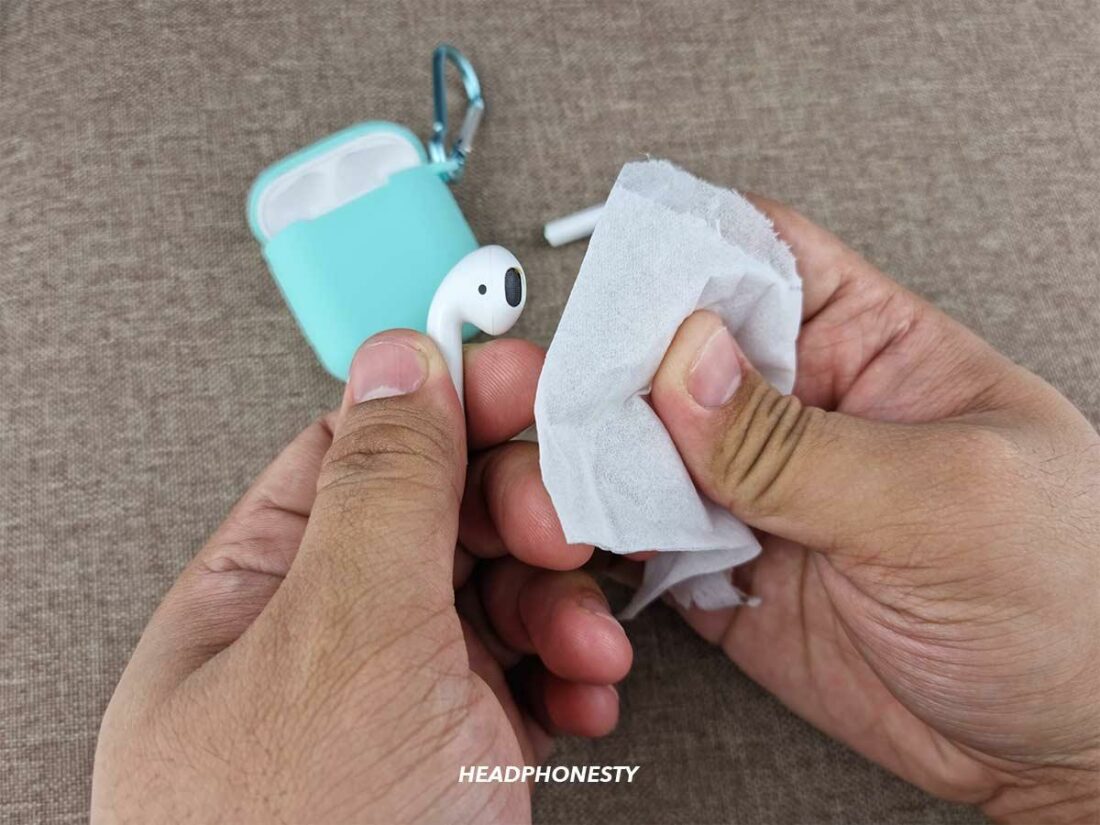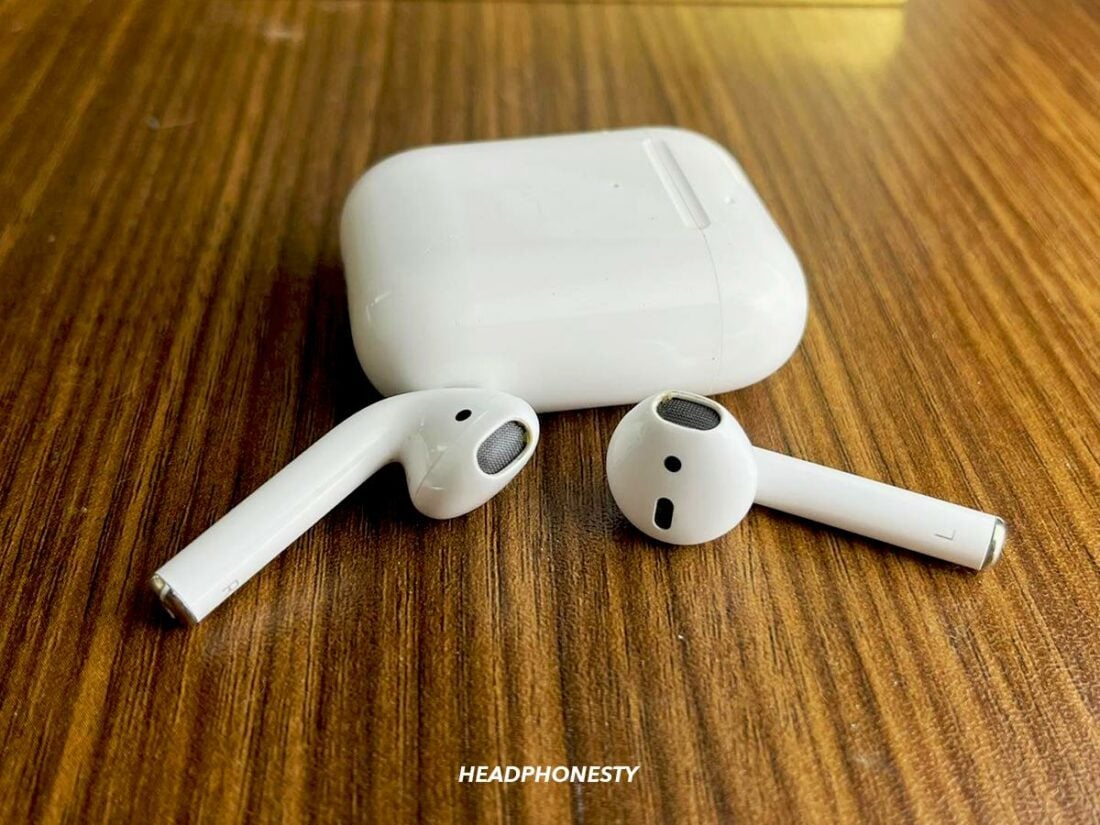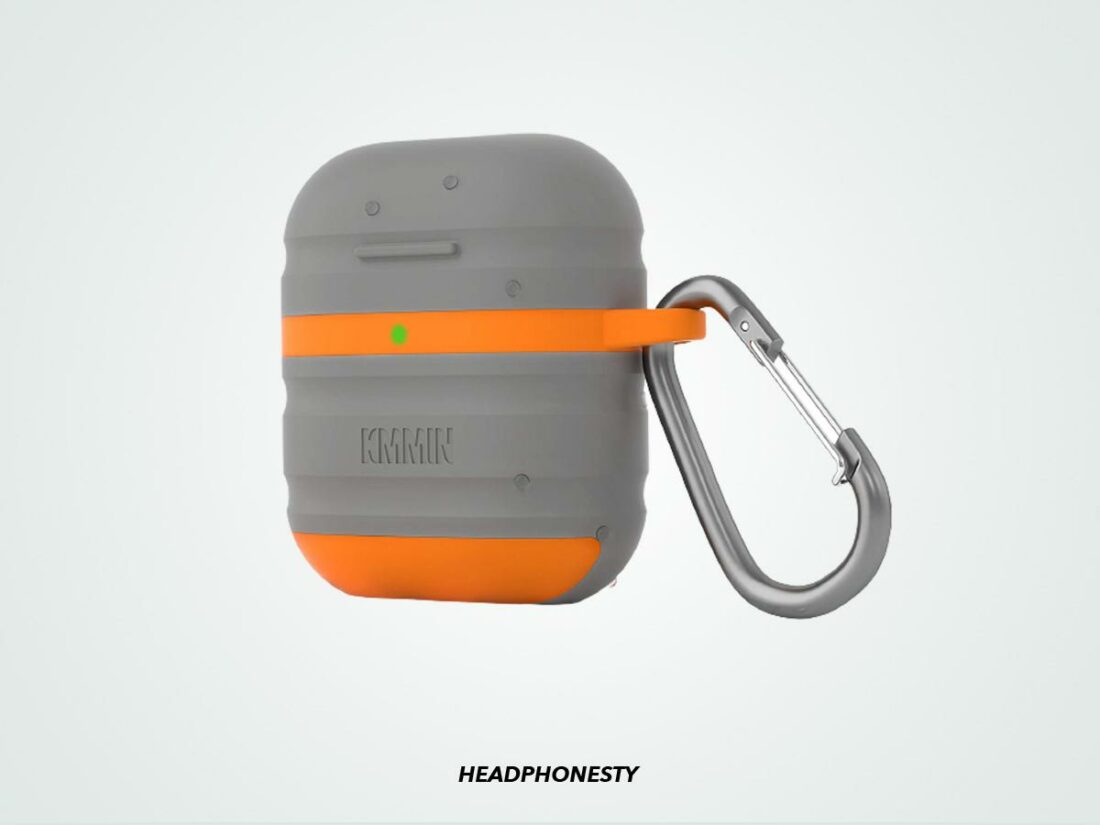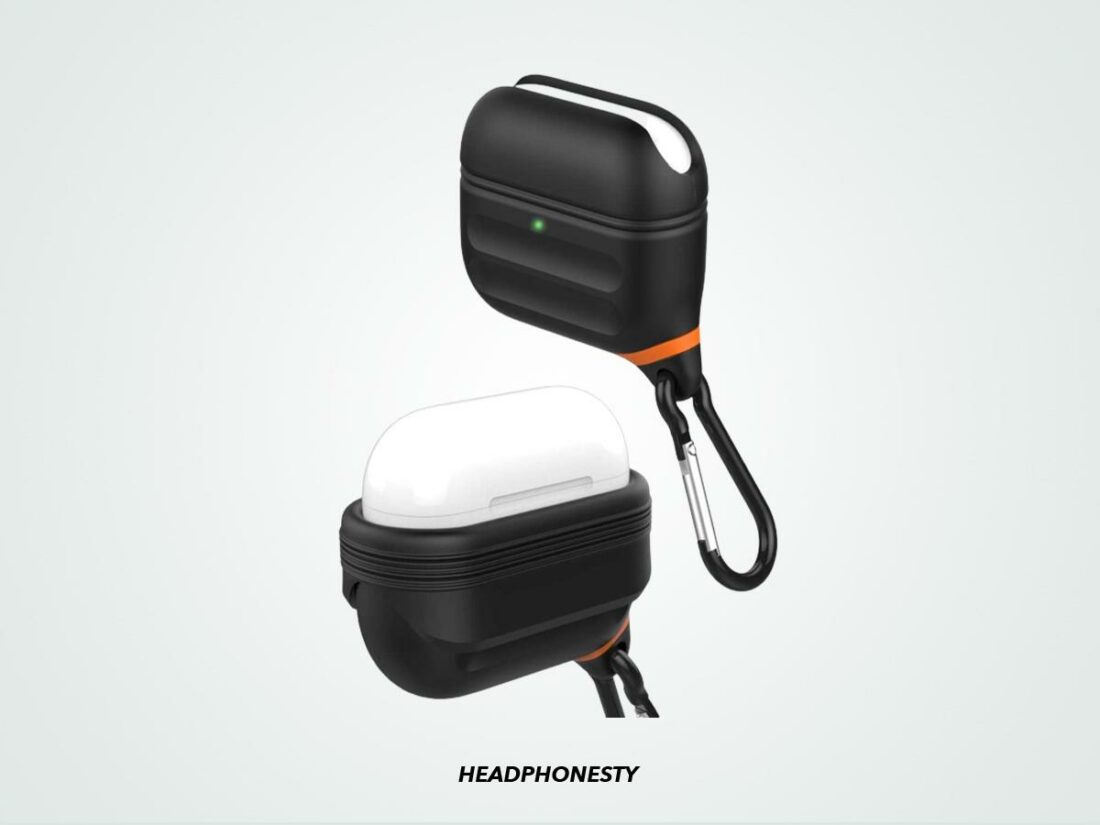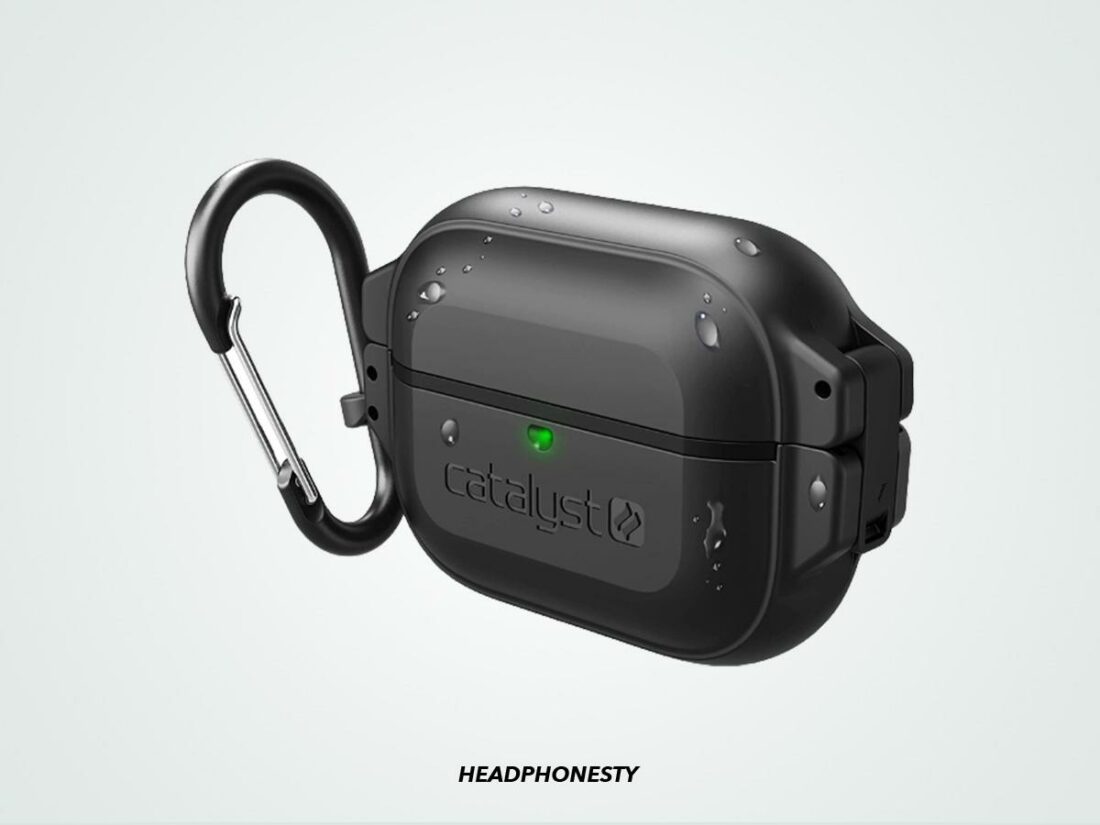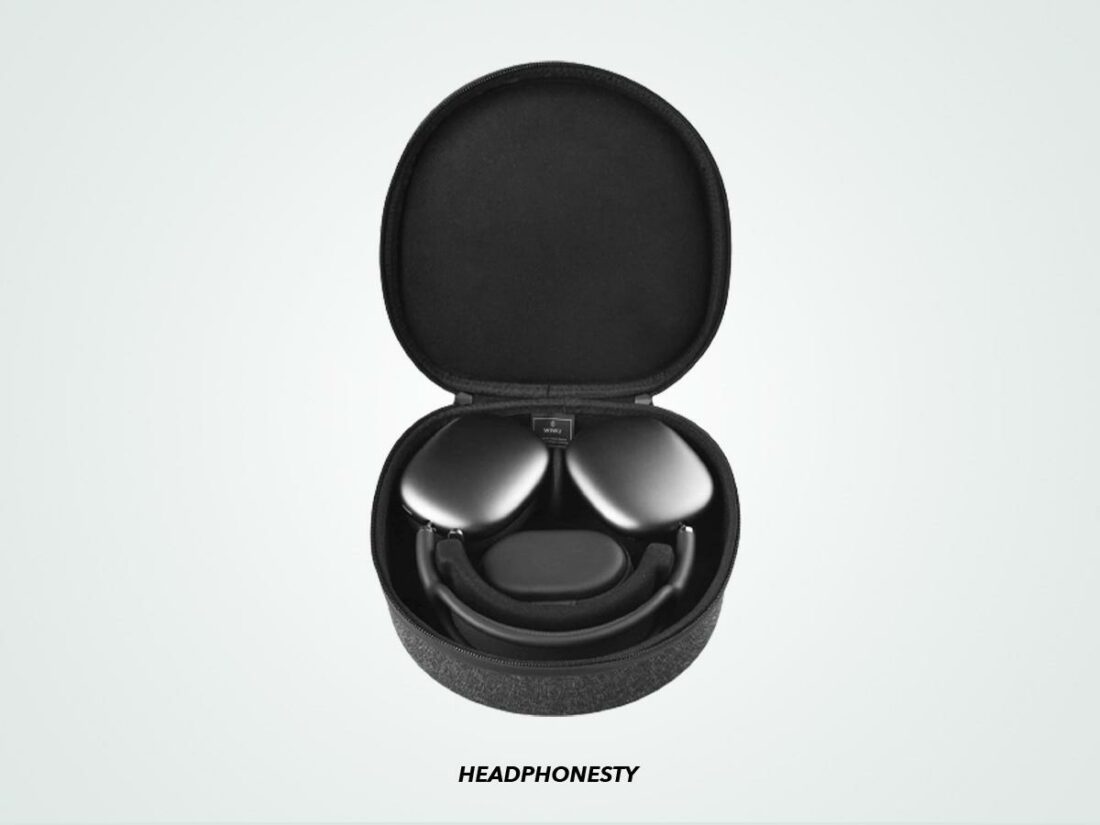The truth about AirPods and their water-resistance limitations. Plus, a handful of prevention tips to keep them from getting wet.
Thinking about using your AirPods to quickly enjoy some music and unwind in the shower or the pool is not a rare thing. Besides, many AirPods users report that their AirPods continue to work even after using them in the shower for months.
Yet, there are also some stories of how the AirPods failed after showering with them a few times. Apparently, water damage isn’t always immediate, as corrosion can develop over time.
This makes you wonder: Which stories are real? Are AirPods actually waterproof?
Fret not, because this article will teach you everything about the AirPods’ water-resistance features and their limitations. Let’s dive right in (but leave the AirPods behind)!
In This Article
Are AirPods Waterproof?
No, AirPods are not waterproof. This means they lack protection against water submersion, and you can’t wear them while showering or swimming.
It’s a real bummer, especially if you’re into water sports, because it’s not ideal for your AirPods to be exposed to water for a long time.
The good news is: Some AirPods models, particularly the AirPods (3rd Gen) and AirPods Pro (1 & 2), are sweat and water-resistant!
These AirPods are right up your alley if you’re the type to listen to music while going for a morning walk or don’t mind the light rain.
But what exactly is the difference between waterproof and water-resistant?
- Waterproof devices can be completely submerged underwater without getting any damage.
- Water-resistant devices can only withstand splashes or light rain. And it can only prevent water from damaging the inside for a short time and at a shallow depth.
How Water-Resistant Are AirPods?
Water-resistance has different levels of protection. And these are determined by what we call the IP ratings, otherwise known as the Ingress Protection ratings.
Of all the AirPods models, only two have an IP rating: AirPods (3rd Gen) and AirPods Pro.
These models are IPX4-rated, which means they are not proofed for dust/solid particles but are sweat and water-resistant.
The IPX4 rating means that they can survive splashing water like rain or sweat, but are incompatible to use in the swimming pool or while showering.
More importantly, this rating indicates that the AirPods have undergone an IPX4 rating test. Here, they were repeatedly exposed to water splashes from all directions to ensure they could survive without being damaged.
Yet, IP ratings do not last forever and have a limit on how much it can survive before eventually experiencing damage. You can expect your AirPods to weaken and wear off their protection abilities, especially when you regularly use and expose them to different elements.
Where does the confusion come from?
There is a lot of false information floating around, so it’s understandable if you’re confused about whether or not your AirPods are waterproof.
For instance, if you search ‘AirPods waterproof‘ on YouTube, you will see countless videos where different YouTubers take the AirPods for a water test.
Of course, coming from these videos, most people are left to believe that AirPods are waterproof.
The top video, for example, has 5.5 million views with the headline “AirPods Drop & Water Test! Secretly Waterproof?” And after the test, the results show that the AirPods and case are still working.
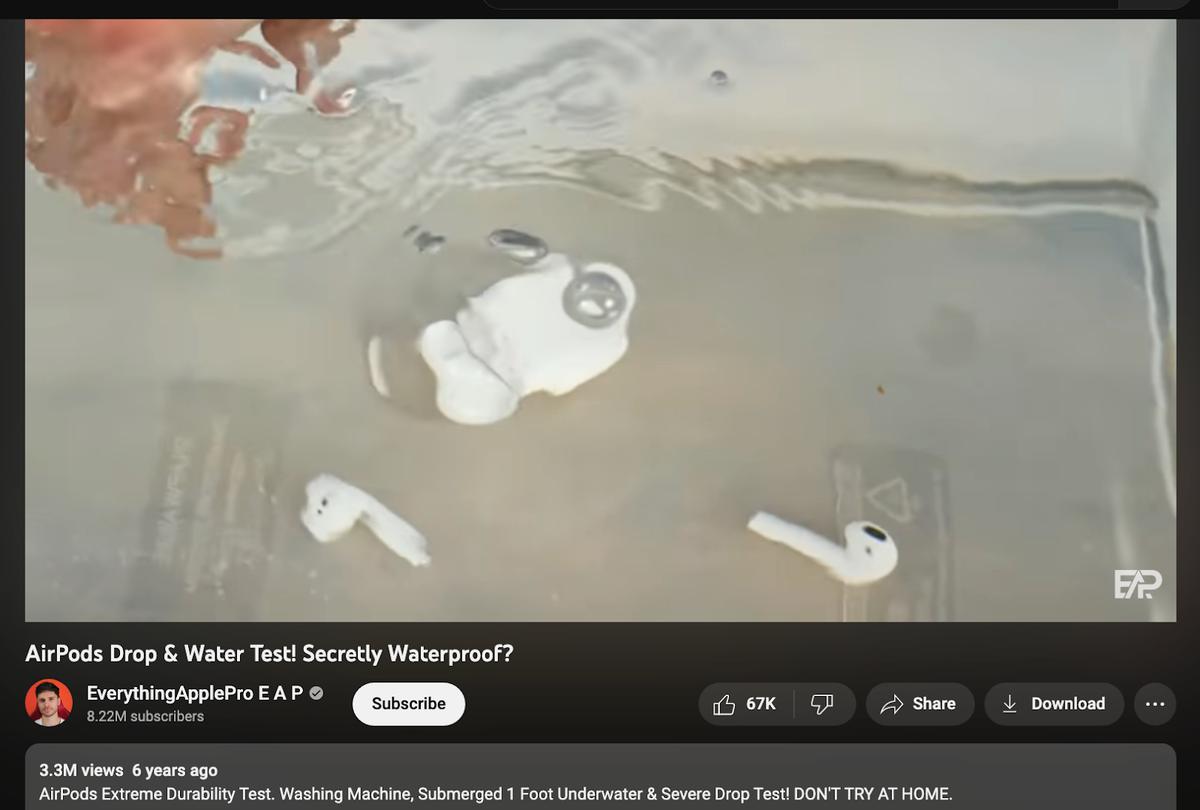
However, unlike the IP Ratings, these tests are not regulated by any official organizations, which makes them less credible.
Water damage also don’t show up immediately on devices, so it’s understandable that the AirPods may function properly right after these tests but die over time.
In other words, the results shown in the YouTube videos may sound promising because they show that the AirPods are still working after the test. But this doesn’t include the long-term effects on the AirPods and how doing it repeatedly can further compromise the device.
Plus, the probability of the AirPods working after getting submerged in water is just one of the many scenarios that could happen. The results you get with your AirPods may not always match those shown in the videos.
So, it would be best if you kept in mind that abusing the capability of your AirPods in water can lead to irreversible damage, and you’ll be left to deal with the consequences.
What to Do if Your AirPods Get Wet
When your AirPods get wet, don’t think of putting your wet AirPods on rice just yet!
Contrary to popular belief, rice won’t save your water-damaged AirPods and can even worsen their condition! Why? Because the rice dust, starch, and grains can get stuck on the components in your AirPods, causing even more damage.
There is a better way to save your AirPods!
The most recommended solution is to dry your AirPods and case using a lint-free cloth. A lint-free cloth will help prevent foreign debris from entering your earbuds and case. Plus help absorb all the water from the exterior of the case.
Follow these steps to dry your wet AirPods:
- Get your lint-free cloth to wipe off the surface of your AirPods, and make sure that every water or debris is absorbed.
Wipe AirPods with lint free cloth - Then, let them air dry for a few more minutes. Never use direct heat to dry your AirPods because this can permanently shorten your AirPods’ battery life. When air drying your AirPods, ensure you keep them between the temperature range of -10º and 45º C (14º to 113º F).
Air drying AirPods - If your case is also affected, make sure you dry all areas of the AirPods case using the cloth. The charging ports and holes are the most important parts you need to dry. Because charging the AirPods while the ports are wet can damage the hardware components inside, which can also cause your charger to stop working.
Wipe the charging case with lint free cloth - Lastly, ensure the AirPods and case are completely dry before using them again.
For more detailed solutions, check out our guide on how to get water out of AirPods.
How to Prevent AirPods From Getting Wet
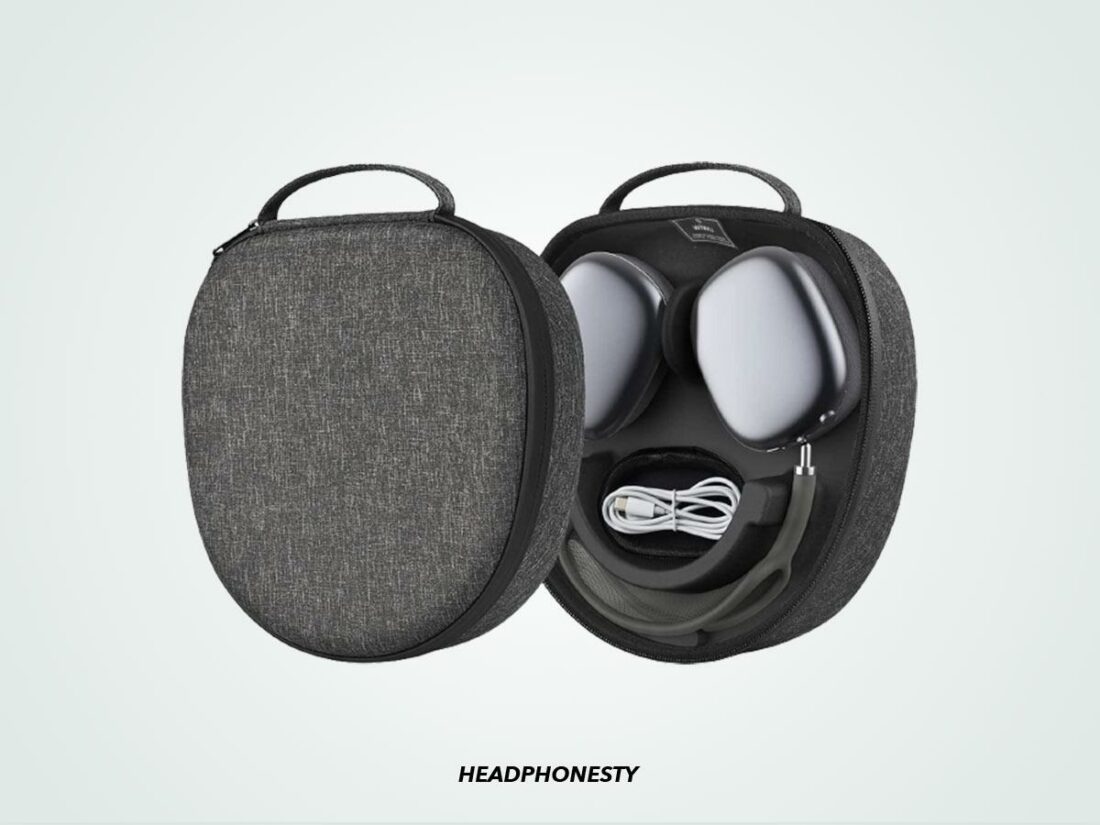
Accidentally getting your AirPods wet once or twice is almost inevitable. As hard as you try to do whatever Apple tells you to do to keep your AirPods safe, there will be instances where you can’t fully avoid this situation.
That’s why it helps to add another layer of protection, like a case cover for your AirPods.
Most case covers are made from a silicone material that is also waterproof. Aside from basic dust and scratch protection, a case also helps seal in your AirPods, preventing them from getting wet and damaged by water.
If you’re looking for high-quality cover cases for your AirPods, these are our top four recommended cases for each Airpods model:
- For AirPods (1st & 2nd Gen): KMMIN Waterproof AirPods Case Cover
Close look at the KMMIN Waterproof AirPods Case Cover (From: Amazon) - For AirPods (3rd Gen): HALLEAST for AirPods 3 Case Waterproof
Close look at the HALLEAST for AirPods 3 Case Waterproof (From: Amazon) - For AirPods Pro (1st & 2nd Gen): Catalyst Waterproof Total Protection Case for AirPods Pro 1 & 2
Close look at the Catalyst Waterproof Total Protection Case for AirPods Pro 1 & 2 (From: Amazon) - AirPods Max: WIWU Smart Case for AirPods Max
Close look at the WIWU Smart Case for AirPods Max (From: Amazon)
Conclusion
Knowing the limitations and capacity of your AirPods in water is a helpful way to maximize your use of your AirPods.
Meaning, you can still use them during your workouts to listen to your favorite music. A splash of water here and there won’t hurt either, so don’t be shy to use it when it’s raining lightly.
What did you think about the article? Did it clarify more about the AirPods and their water-resistant features? Let us know what you think!
